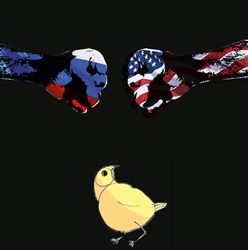To be America’s enemy is dangerous, to be its friend is fatal,” said veteran diplomat Henry Kissinger, five decades ago. This is now dawning on Ukrainian President Volodymyr Zelensky. After last year’s Russian invasion, President Biden had loftily declared, “We will support Ukraine as long as it takes”. But long can become too long and, anyway, comes with an expiry date. Notice was served on Biden and Zelensky when the Republicans blocked $6 billion aid for Ukraine in the US Congress. Biden is the most powerful man on earth, but not in America. There, domestic issues prevail.
Western support for Ukraine wobbles because of war fatigue among ordinary citizens who are reeling under a prolonged cost-of-living crisis. Elections force leaders to look inwards. Expecting a pro-Putin Donald Trump to return and backed by dissatisfied voters, congressional Republicans are manoeuvring to end US assistance to Ukraine. Slovakia recently reelected a former pro-Russian prime minister, Robert Fico, who promises not to send “a single round” of ammunition to Ukraine. The leaders of Germany, France, Italy, Spain and Britain are dropping in opinion polls. Across Europe, right-wingers are resurrecting on a new issue-end this war and spend the money on suffering locals.
Despite being a staunch ally of Kyiv, Poland banned cheap Ukrainian grain imports that undercut its farmers, a major vote bank in the upcoming polls. Hungary and Slovakia also banned Ukrainian grain, enabled under a special EU dispensation. German agriculture minister Cem Özdemir complained that the three countries were behaving like part-time lovers: “When it suits you, you are in solidarity and when it doesn’t, you are not.” Ukraine filed lawsuits against its three EU neighbours in the WTO. Polish Prime Minister Andrzej Duda compared Ukraine to a “drowning person, dragging down the rescuer”.
Notwithstanding harsh rhetoric and disputes, European Commission President Ursula von der Leyen is fiercely committed to €50 billion aid to Ukraine and to announcing the start of talks on Ukraine’s accession into the EU. Ukraine is an attractive market for Germany and France, but it is an unwelcome competition to some smaller EU countries who stand to lose power, exports and subsidies to the newcomer. Besides, accession demands internal reforms. Says von der Leyen’s predecessor Jean-Claude Juncker, “Anyone who has had anything to do with Ukraine knows this country is corrupt at all levels of society. It is not ready for accession.”
The American media glorifies Ukrainian soldiers, but ignores the desperation of men avoiding conscription. Smuggling dodgers out of Ukraine is a big, corrupt business. “The price we are asked to pay with disability or death is higher than the value of having a country. I would rather be a refugee than die,” 22-year-old Ukrainian Maksim told German broadcaster Deutsche Welle. Ukraine needs weapons and funds for the war and to run its administration. The EU asserts publicly that it cannot shoulder the funding burden without US support. German Chancellor Olaf Scholz declined to supply Ukraine with Taurus missiles because he wished to avoid “escalation of the war and becoming part of the conflict”.
Nobody expects an immediate Afghanistan-style pullout from Ukraine, but “US abandonment” has started rising from Europe’s subconscious to the conscious. “The big elephant in the room is: What if this is the precursor to the US abandoning Ukraine?” says an EU diplomat. It is in the back of everyone’s minds.”
Pratap is an author and journalist.


